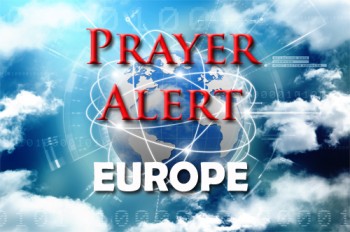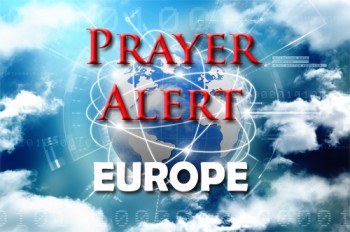Displaying items by tag: rebellion
Israel: Religious v secular politics
For three years no stable government has been established despite five elections. Currently a right-wing, religious government rules. But the opposition refuses to accept it. There are civil uprisings involving all sectors of society, even the military. Police usually crack down on right-wing and settler demonstrations. Now they are allowing protesters to shut down highways etc. Many say ‘Israel is being shaken to its very foundations’ and it’s getting worse daily. The conflict is a spiritual battle between secular and religious visions. Israel's first Prime Minister David Ben Gurion was never able to reconcile the opposing secular and religious sectors for Israel and finally gave up on the idea of formulating a foundational constitution or charter for Israel. He decided the state of Israel would be founded on the UN's general principles of human rights. Is Israel to be a state like all other nations, or does God have a different calling for Israel?
China: protests continue despite restrictions
Despite increasingly repressive rule under the Chinese Communist Party (CCP), dissent occurs regularly and is geographically widespread, according to a new analysis by Freedom House. It recorded 668 instances of dissent in China from June to September, as people spoke out against stalled housing projects, labour rights violations, fraud, Covid policies, and state violence, among other grievances. The analysis found that ¼ of cases involving people who engaged in dissent faced authorities’ reprisals - including violence, intimidation, detention, and censorship - illustrating CCP’s efforts to restrict organised collective action. Contrary to what China wants the world to believe, individuals throughout the country are standing up to Beijing’s machine of censorship and repression to make their voices heard. More Chinese are courageously exercising their fundamental rights to free expression and assembly. Some are achieving concessions from private companies and local officials, which is troubling to the increasingly oppressive party.
Europe: second wave rebellion
Europe’s coronavirus restrictions have sparked civil unrest, turning violent, across a number of countries. Civilians are refusing to submit to new strict coronavirus rules. Turin demonstrators took to smashing windows and using smoke bombs, and threw bottles at police officers. In Naples protesters clashed with police in demonstrations against an 11pm to 5am curfew. Southern regions are worst affected by stricter measures. Italians call the shutdowns an injustice. Spanish protesters in Barcelona took to the streets to denounce the second state of emergency in six months. Prague police officers resorted to tear gas and water cannons to break up violent protests. Paris and Marseille also saw protests after a countrywide state of emergency was declared. Anti-lockdown demonstrations are a regular weekend occurrence in London. Willingness by law-abiding citizens to comply with complex regulations is beginning to fray. Only 39% in the UK approve of the government Covid policies.
France: protests against Macron continue
Approximately 84,000 protested for the tenth successive weekend, despite President Macron spending hours in rural town halls debating with disgruntled mayors in a counter-offensive. The ‘yellow vests’ didn’t demobilise. In Paris, several thousand marched in freezing temperatures, many waving placards calling for Macron to resign or condemning police violence. The Paris rally and several others ended with police, tear gas and water cannon dispersing hooded protesters throwing paving stones and bottles. Macron, who had not previously held public office, was elected at the head of a grassroots movement going door-to-door asking people what kind of changes were needed. But once in office he has adopted a top-down approach more in keeping with post-war president Charles de Gaulle. He has defended his reforms vigorously in debates, while promising to be open to making adjustments. A protester, echoing the yellow vests' top demands, said, ‘What I want is citizen-sponsored referendums so that citizens can repeal laws, oversee spending, and recall senior officials or even the president.’



